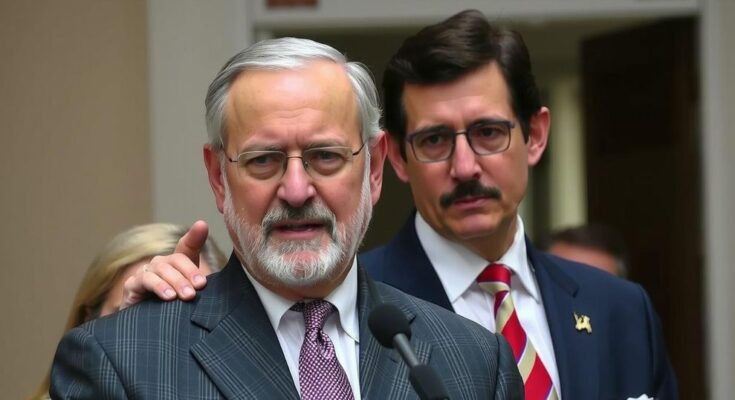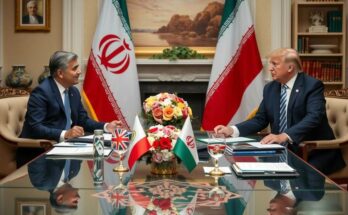A senior UAE official, Anwar Gargash, voiced concerns over the Islamist affiliations of forces that recently overthrew Bashar al-Assad in Syria. He acknowledged the new leaders’ calls for unity but emphasized the importance of addressing troubling connections to groups like the Muslim Brotherhood and Al-Qaeda while condemning Israel’s military actions in Syria.
A senior official from the United Arab Emirates (UAE), Anwar Gargash, expressed concerns regarding the Islamist affiliations of the forces that have recently ousted Syrian President Bashar al-Assad, following a rapid military offensive that ended a civil war lasting nearly 14 years. Gargash remarked that although the new leadership in Syria has proposed a message of unity and inclusivity, their connections with organizations such as the Muslim Brotherhood and Al-Qaeda raise significant apprehensions. He emphasized the need for caution, reminding observers that similar situations in the region have previously yielded adverse outcomes, notably referencing the actions of the Islamic State group in Syria and Iraq.
The transition of power in Syria has raised eyebrows among regional and international observers. The Islamist group Hayat Tahrir al-Sham (HTS), linked to Al-Qaeda in Syria, led the charge against Assad, establishing a transitional government that claims to uphold the rights of all Syrians. Gargash called upon Arab nations to avoid repeating the mistakes of the past by fostering a stable political environment in Syria. In his address, he also criticized Israel’s military operations in Syria as detrimental, arguing that both practical and diplomatic approaches should be considered to foster regional stability. The UAE has maintained a trajectory of normalizing relations with Israel since 2020, adding complexity to the geopolitical dynamics in the Middle East.
The context surrounding the situation in Syria involves a protracted civil war that began in 2011, with various factions fighting for control following the eruption of protests against Assad’s regime. The recent ousting of Assad has ushered in a new governing body predominantly led by Islamist elements, a shift that raises significant geopolitical concerns, especially among neighboring Arab states. The relationship between Islamism and governance in Syria underscores a larger discourse around the role of Islamist groups in the region, particularly those with ties to internationally designated terrorist organizations. The UAE’s perspective reflects broader anxieties about stability in Syria and its implications for regional security, especially in light of Israel’s ongoing military involvement.
In summary, the UAE’s apprehensions regarding the new ruling forces in Syria underscore the potential risks associated with Islamist governance amidst a backdrop of instability. Anwar Gargash articulated the need for vigilance in monitoring the developments and regional dynamics, reinforcing that the international community must be proactive in mitigating the ramifications of the Syrian conflict. The complex interplay of Islamist affiliations, geopolitical interests, and historical precedents necessitates a carefully coordinated response from the Arab world and beyond to foster lasting peace and security in the region.
Original Source: www.hindustantimes.com




